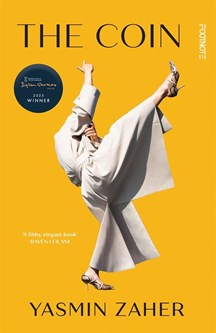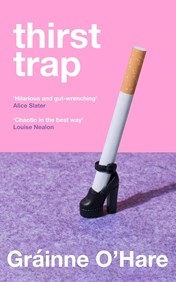RECENT fiction challenges outdated notions of geography. The Emperor of Gladness by Ocean Vuong (Jonathan Cape, £20 (£18); 978-1-78733-540-0) is set in Connecticut: not the New England idyll of vacationing New Yorkers, but the state as it is experienced by immigrants who arrived in recent decades, a place of dereliction, minimum-wage service jobs, and untreated chronic health conditions.
Having dropped out of college, owing to prescription-drug addiction, and returned home, Hai convinces his Vietnamese mother he has won a place at medical school, and buys a bus ticket to Boston to set off for his second chance. But he never boards the bus, instead checking into the New Hope recovery centre, with its many images of Jesus, and devout staff.

Hai’s reintegration into society continues through becoming a carer for a Lithuanian dementia-sufferer, Grazina, while also working at a casual-dining restaurant. Yet, for his mother, he continues to conjure up scenes of playing Frisbee with fellow medical students, while phoning from the restaurant’s backyard bins.
“Palestine is not a country” declares the narrator of The Coin by Yasmin Zaher (Footnote Press, £9.99 (£8.99); 978-1-80444-189-3). Dressed smartly in high-end brands, the narrator follows complicated bathing rituals to make sure that she is not perceived as coming from “the third world”. But external rituals are not enough to keep her mind focused on teaching at a New York middle school, filled with aspirational immigrant students. An obsession with dirt, unsuitable lovers, and a get-rich pyramid selling scheme for Birkin bags cloud the narrator’s judgement until she is no longer able to function.
Stylistically innovative, this novel presents a New York of workers’ neighbourhoods and transport hubs, offering the American dream for anybody with the energy to pursue it, but no safety net or places of respite for those whose past traumas desiccate present opportunities.

The Troubles and religion take a back seat in the Belfast of Thirst Trap by Grainne O’Hare (Picador, £16.99 (£15.29); 978-1-0350-4619-5). Instead, we are plunged into a hedonistic city of bars, clubs, and recreational drugs. Told from the perspectives of the housemates Maggie, Harley, and Roise, the novel explores their attempt to hold on to the carefree period of post-graduation, friendship-centred, twenty-something life, as the clouds of responsibility, death, and betrayal hover on the horizon.
Opening with the one-year memorial mass for their mutual friend Lydia, the novel gives several nods to Fleabag as it examines how grief is processed during what are supposed to be “golden years”. “It’s never just a fringe,” says Maggie’s hairdresser friend, when Maggie wonders if a change in appearance can alter difficult emotions.
















